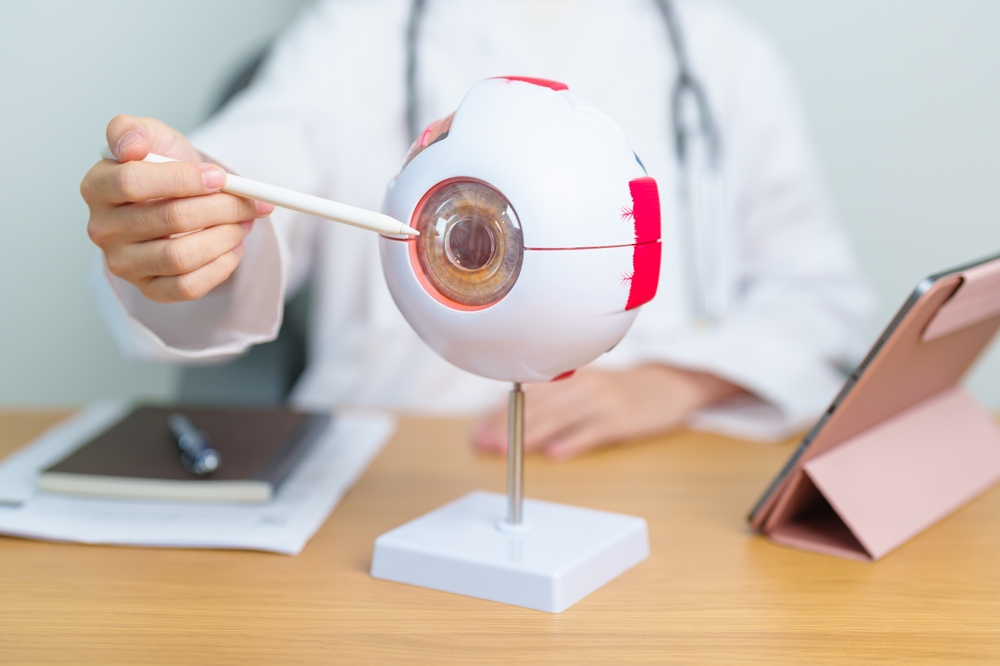
Macular degeneration is a leading cause of vision loss, particularly among older adults. This condition affects the macula, the part of the retina responsible for clear central vision, making it difficult to read, drive, or recognize faces. While there is no cure for macular degeneration, understanding the early signs, risk factors, and prevention strategies can help you protect your vision.
Understanding Macular Degeneration
Macular degeneration is an eye condition that affects the macula, the small central part of the retina responsible for sharp, straight-ahead vision. It causes the gradual loss of central vision, making it difficult to perform everyday tasks such as reading, driving, or recognizing faces.
There are two main types of macular degeneration: dry and wet. Dry macular degeneration is more common and progresses slowly, while wet macular degeneration is less common but more severe and can lead to rapid vision loss. Although it does not cause complete blindness, macular degeneration can significantly impact a person’s ability to see clearly and live independently.
Signs of Macular Degeneration
Macular degeneration often develops gradually and may go unnoticed in its early stages. As it progresses, individuals may experience:
• Blurry or fuzzy central vision
• Difficulty recognizing faces
• Distorted vision, where straight lines appear wavy
• A dark or empty spot in the center of vision
• Trouble seeing in low light or adjusting from bright to dim environments
If you notice any of these changes in your vision, it is important to schedule a comprehensive eye exam as soon as possible.
Risk Factors for Macular Degeneration
Several factors can increase your risk of developing macular degeneration. These include:
• Age: The condition is most common in people over the age of 60
• Family history: Genetics play a role in your likelihood of developing the disease
• Smoking: Tobacco use significantly increases your risk
• High blood pressure and cardiovascular disease
• Obesity: Being overweight can contribute to the progression of the disease
• Poor nutrition: Diets low in leafy greens, fruits, and antioxidants may raise your risk
• Prolonged sun exposure: UV light can damage retinal cells over time
Prevention Tips
While some risk factors like age and genetics cannot be controlled, you can take proactive steps to lower your risk and protect your vision:
• Eat a nutrient-rich diet: Include foods high in antioxidants, such as leafy greens, berries, and fish rich in omega-3 fatty acids
• Quit smoking: This is one of the most effective ways to reduce your risk
• Exercise regularly: Staying active helps support healthy blood flow to the eyes
• Manage health conditions: Keep blood pressure and cholesterol in check
• Protect your eyes from UV light: Wear sunglasses that block 100 percent of UVA and UVB rays
• Schedule regular eye exams: Early detection is key to managing macular degeneration and preserving vision
Protect Your Sight at Cincinnati Vision Group
Macular degeneration can have a serious impact on your quality of life, but early detection and healthy lifestyle choices can make a significant difference. We are committed to helping you maintain your eye health through thorough exams and personalized care.
Schedule your comprehensive eye exam with Cincinnati Vision Group and stay ahead of macular degeneration. Visit any of our offices in Cincinnati, Liberty Township, Dayton, or West Chester, Ohio. Call (513) 793-5970, (513) 712-5065, (513) 753-4981, (937) 435-4293, or (937) 579-0393 to book an appointment today.




